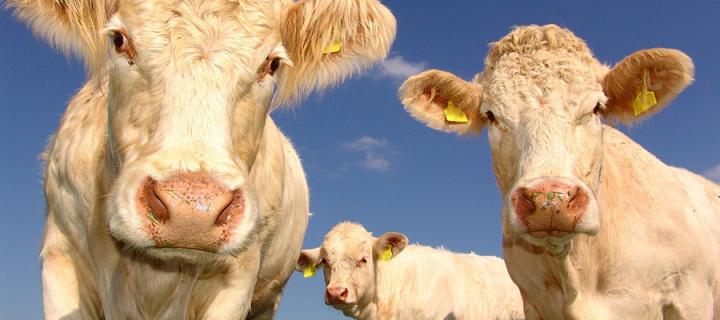Cow gut DNA study could help improve meat and dairy
Scientists discovered thousands of microbes in cows’ stomachs which could improve meat and dairy yields, and cows’ health.

The findings build the clearest picture yet of how the microbes in a cow’s rumen - the first of its four stomachs - help cattle to digest and extract energy from their food.
Researchers from Scotland’s Rural College (SRUC), the Roslin Institute and the Rowett Institute at the University of Aberdeen analysed the rumen contents of hundreds of cows and discovered thousands of bacteria, as well as archaea – a separate group of single-celled organism.
Pinpointing which microbes are essential for livestock wellbeing and food production could inform future breeding programmes.
Greenhouse gas emissions
The microscopic organisms provide cattle with nutrients and energy, contribute to the animals' health and, as a bi-product, release methane which is a concern for global warming.
The latest research follows on from a 2017 study by the same team which linked DNA analysis to food digestion, animal health and greenhouse gas emissions.
Thousands of newly found microbes
The team used the latest DNA technologies to obtain the complete genetic makeup of several new bacterial species.
They studied samples from 283 cows, identified almost 5,000 new strains of microbe and more than 2,000 novel species - microbes that previously no-one knew existed.
Hundreds of thousands of novel enzymes, whose instructions are encoded in the DNA, may have potential uses as biofuels, or in the biotechnology industries.
The study is published in the journal Nature Biotechnology.
Cow health, meat and dairy production
We were surprised by how many completely new microbes we have discovered, which is far more than in our previous study. The findings will inform studies of cow health, meat and dairy production for many years to come.
We’ve identified some 5,000 novel genomes of microbial species in the rumen that all play a vital role. Not only do they enhance breeding and nutrition to reduce greenhouse gas emissions from cattle, they also improve production efficiency, product quality and animal health.
** The Roslin Institute receives strategic investment funding from the Biotechnology and Biological Sciences Research Council and it is part of the University of Edinburgh’s Royal (Dick) School of Veterinary Studies. **
** This article has been prepared with materials provided by SRUC. **
Related links
Award winning Scottish research could pave the way for ‘low-emission cattle’
News coverage by ITV, The Herald, News Beezer


